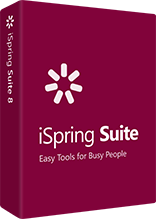Top 10 Online Gradebooks for Teachers
Finding grading software to suit your needs can be a difficult task. This list of 10 popular online gradebooks might help simplify your search.
Here are 5 free options with paid upgrades.
1. Engrade
Engrade is a robust teacher tool that’s so much more than just a gradebook. With the ability to tailor assessment and evaluation categories to teacher needs, plus an attendance record and lesson planner, this free tool is all teachers need to organize and maintain their records.

Pros
- the ability to create accounts so students can monitor their progress and retrieve and submit assignments
- apps which allow you to build quizzes, flashcards and wikis for your students
- options to create online seating plans, save teacher comments, and keep track of learning skills
- software is from McGraw-Hill Education, a trusted publication source
Cons
- though Engrade supports a variety of operating systems and browsers, there is the chance that students with older computers may not be able to access the service from home
- when you use this service you are uploading sensitive information to a third-party server, and must get parental permission to do so
Paid features that come with Engrade Pro include:
- a rubric builder
- a database repository to store and retrieve previous lessons and assignments
Schools and institutions are encouraged to contact Engrade directly for quotes to access Engrade Pro.
2. Thinkwave
Though Thinkwave has been around for decades and the software has been streamlined since the early years, not much else has changed. Thinkwave remains a good choice for keeping track of student grades and communicating student progress to parents.

Pros
- get your class up and running within minutes of creating an account
- a variety of report styles when displaying data
- the ability to distribute and collect assignments online
Cons
- though there are a variety of options for assessment and evaluation parameters, educators outside of the U.S. may find it difficult to tailor the interface to their needs
- students must be added to the database one at a time (rather than by uploading a CSV file)
For $49.95 USD, Thinkwave users can have
- online storage increased to 100 gigabytes
- no advertising
- the ability to distribute assignments in digital format
3. Schoology
Students and parents can self-enroll in a Schoology class, as long as they have the access code. The interface combines features of Facebook and Twitter, making it easy for students to navigate.

Pros
- the ability to distribute and collect assignments online
- materials for lesson planning may be uploaded from a variety of sources or linked to the web
- built-in attendance record
- customizable learning expectations for the United States and Canada, and for a number of other countries
Cons
- teachers must wait for students to self-enroll before they can keep track of their progress
- you have to set parameters if and when you will answer student messages outside of school hours
With Schoolology’s paid Enterprise package, you get
- the ability to control and communicate with other users system-wide
- audio-video and web-conferencing support
- unlimited storage
Institutions are asked to contact a Schoolology representative for Enterprise pricing.
4. Edmodo
Like Schoolology, Edmodo has an intuitive student interface, reminiscent of Facebook and Twitter, which will help with student engagement.

Pros
- the ability to send and collect assignments online
- a store of free (and paid) apps that you can browse and install to increase Edmodo’s functionality
- teachers can connect with other teachers using the software
Cons
- the gradebook cannot be accessed until there are students enrolled
- students must self-enroll with a code before they can receive assignments or have grades recorded
- teachers outside of the U.S., Canada, U.K., Ireland, and Australia cannot access free apps
While the use of Edmodo as a tool for student engagement and classroom management is free, there are a number of apps that require a purchase prior to installment. Users can purchase credits once they have entered their credit information. The price of apps varies by publisher.
5. LearnBoost
LearnBoost‘s point-and-click interface allows you to set up a classroom in no time. Teachers can set their LearnBoost classrooms’ permissions to allow for both student and parent access.

Pros
- integration of a number of online services including Google+, Facebook, WordPress and Twitter
- a teacher portfolio which allows you to upload and reuse lesson plans and materials
- built-in lesson planner, seating plan generator, and attendance keeper
Cons
- American specific – only U.S. standards/expectations are available in the database
- graphics-based dashboard does not have hover-labels to help with navigation
While LearnBoost currently has no paid features, they promise a Marketplace will be coming soon for apps and teacher lesson plans.
Here are 5 paid gradebook services to consider:
6. EasyGradePro
EasyGradePro is spreadsheet-based gradebook software that keeps track of an unlimited number of classes and students.

Pros
- phone-based support and extensive online instructions
- autosave
- customizable grade calculation
Cons
- though it is customizable, there is only the ability to use 5 grading categories
- the site recommends you have an understanding of the math behind grade calculation to effectively use the software
- no student or parent access, as the software is not web-based
EasyGradePro is $49.00 USD for a single user license and $805.00 – $1006.00 for a department or school license.
7. MarkBook
MarkBook is gradebook and class management software that is highly customizable.

Pros
- the publishers, Asylum Software, will work with your school board to fully customize your version of MarkBook to suit your local needs.
- the iOS Edition of the software works on iPad, iPhone, and iPod Touch devices, allowing you to use the software on the go
- training staff will come to your school to train teachers on the software
Cons
- there is no software for Android users
- new software must be ordered and installed for each school year
- no student or parent access, as it is not web-based
Individual, department (10 users) and site, and school-wide licenses are available worldwide. Interested parties are asked to call a MarkBook distributor in their area.
8. Alma
Alma is comprehensive, web-based software that claims to streamline everything from grade reporting and lesson planning to board-wide communication and more.

Pros
- fully integrated with Google Classroom
- cloud-based and no software to install
- web-based to facilitate communication between administrators, teachers, parents, and students
Cons
- demos must be requested and scheduled
Schools and/or districts are asked to contact Alma via phone or email to schedule a demonstration before discussing cost.
9. Gradekeeper
Gradekeeper is simple, spreadsheet-style software dedicated to one purpose: keeping grades.

Pros
- the one-time purchase price allows you to use the software forever
- the iOS version may be used on portable Apple devices
- the software may be installed on Dropbox to allow teachers using desktop computers access to student grades, both at work and at home
Cons
- though Gradekeeper works with a number of online services to facilitate online grade posting, the software itself is not web-based
- there is no software for Android users
Gradekeeper is $20.00 USD for a single-user license, $100.00 for a school license, and $500.00 for a district/board license.
10. 1st Class Software
1st Class Software is another simple, spreadsheet-style software resource that allows you to input student grades, create a variety of reports, and email results to parents. Made by teachers, for teachers, 1st Class Software will pay you $50.00 if you are not satisfied with their software.

Pros
- user interface is intuitive
- extensive support files available online
- categories and weightings are customizable
Cons
- no student or parent access as it is not web-based
- unclear if a Mac OS version is available
Single user licenses are $69.99 USD if you download the software, up to $1,199.20 for 80 users. There is a $14.99 shipping charge if you would prefer the software on CD. Upgrades are free for up to 1 year after purchase.
Conclusion
We’ve combed the World Wide Web to find the top 10 resources for busy teachers and administrators to organize online gradebooks. We hope you find one or more of these resources useful in your school!
Would you like to share your experiences using online gradebooks? We’d love to hear about it in the comments below!



